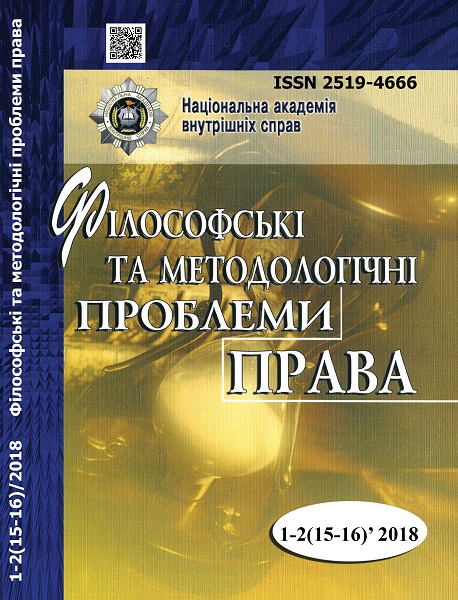Foreign Theoretical and Legal Traditions of Organization of State Power
Abstract
The article is devoted to the coverage of foreign philosophical, theoretical and legal traditions of the organization of state power. The legal nature of state power and its interpretation at different stages of human development are considered by author. Issues of the relationship between state power and ideological social orientations are revealed. The correlation between state power and society is explained, the necessity to organize knowledge in the scientific system and make them the property of citizens in order to streamline a more organized, cultural, civilized, secure and free life. Today, democratic processes require the power to govern with minimal use of force. Citizens of post-totalitarian societies tend to equate force and power, and the transition to a new perception of power requires a considerable amount of time, a change in generations. It is such processes that we observe in modern Ukraine. Society fights freedom from total power. Political events, such as the 2004 Orange Revolution and the 2014 Dignity Revolution, may serve as confirmation of this. For Ukraine, which is at the stage of reforms, the historical and contemporary experience of organizing the state power of foreign countries has a particular importance, since the changes should apply to all spheres of public life and the exercise of power both at central and local levels.
Downloads
Abstract views: 120 PDF Downloads: 62
Copyright (c) 2019 Philosophical and Methodological Problems of Law

This work is licensed under a Creative Commons Attribution-NonCommercial-NoDerivatives 4.0 International License.
- Authors reserve the right to authorship of their own work and transfer to the magazine the right of the first publication of this work under the terms of the Creative Commons Attribution License, which allows other persons to freely distribute published work with mandatory reference to authors of the original work and the first publication of an article in this magazine.
- Authors have the right to enter into separate additional agreements on non-exclusive dissemination of the work in the form in which it was published in the journal (for example, to post an article in the institution's repository or to publish as part of a monograph), provided that the link to the first publication of the work in this journal is maintained.
- The journal's policy allows and encourages the posting of articles by authors on the Internet (for example, in electronic storehouses of institutions or on personal websites), both before the submission of this manuscript to the editorial office and during its editorial processing, as this contributes to the creation of a productive scientific discussion and positively affects the efficiency and dynamics of citing the published work.




